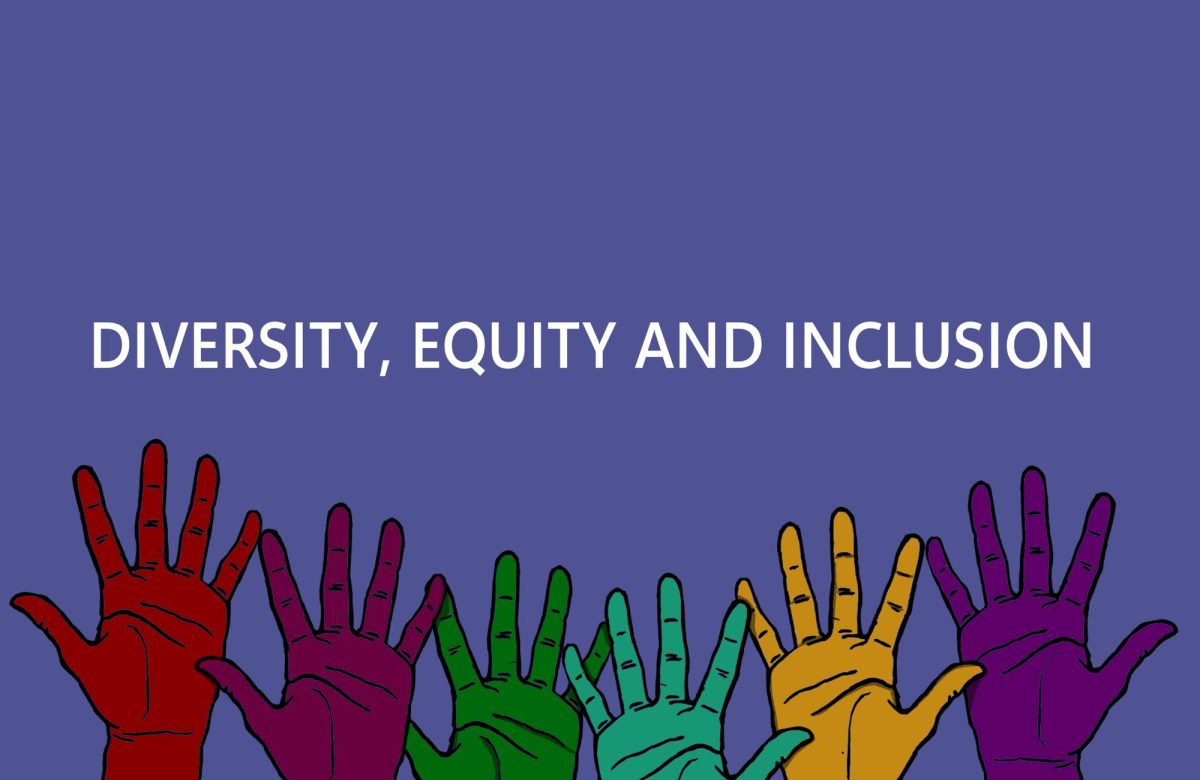During our spring 2023 Foundations of Civic Engagement (PAD 2073) class, with Dr. Jaramillo, we considered several topics to study that are relevant to the UTSA community. Ultimately, we decided to explore UTSA faculty, staff and students’ perceptions of UTSA’s diversity, equity and inclusion (DEI) policies and practices. One reason we were interested in this topic was the heavy scrutiny of public universities’ diversity, equity and inclusion (DEI) policies and practices, especially given the introduction of Senate Bill (SB) 17 by Senator Creighton during the Texas Legislature’s regular session. The eventual passage of the bill by the Texas Legislature and signing into law by Governor Abbott added greater interest to the topic. At the time, we wanted to explore whether students, faculty and staff confidently understood what DEI policies are. We also wanted to begin to understand the level of familiarity of the UTSA community with the existing and proposed laws; however, more recently, the University of North Texas announced the closing and reorganization of its offices related to diversity, equity and inclusion, to meet the legislation’s mandate (Rodrigues). For this reason, we want to share what we learned.
For our exploratory study, we conducted interviews and a focus group of UTSA students, faculty and staff. To investigate UTSA student attitudes and opinions, we collected and analyzed responses from seven individual student interviews and a focus group consisting of five students. To better understand faculty and staff attitudes and opinions, we conducted individual interviews with six members of UTSA faculty and staff. We assured participants of their anonymity, given the topic’s political contentiousness. For the individual interviews of students and the single focus group, we administered one set of questions. For the individual interviews with faculty and administrators, we used a separate set of questions. We recognize that our study has significant limits and we do not make any claims about our findings having generalizability to the greater UTSA community. As a Hispanic-Serving Institution, however, we believe it is important for classes like ours to spend time considering these issues.
FINDINGS
Our findings for students’ attitudes and behavior were consistent across the individual interviews and the single focus group. In general, student participants indicated that they believe DEI policies are necessary because they promote and voice the opinions of students who often felt they were being ignored by those in power.
We started the interviews and focus group by asking students what the terms diversity, equity and inclusion means to them as students. One student said the statement means “being accepted, no matter your background.” Another student stated that they believed the term DEI meant that every individual and group from all races, creeds and orientations had a safe place on campus.
Similarly, when asked what students believe is the purpose of DEI policies and practices at UTSA, student responses indicated they believed it was to create a safe place. The level of knowledge regarding DEI was mixed and primarily based on the student’s personal involvement on campus and their own demographic characteristics. For students who are more active on campus in student activities or by talking to other students, there seemed to be more awareness of the issues related to DEI. Relatedly, students tended to associate DEI policies with personal experiences, noting, ‘I’ or ‘we’, suggesting that students understand how policies may impact them individually or the community with which they identified.
Our visits with students also indicated that faculty play an important role in creating a safe space on campus. One student reported that their professor began the course by asking students their pronoun preferences. The professor’s thoughtful act sparked a comfortable and safe class environment for all students. Furthermore, the student mentioned that adding pronouns on name tags can be very inclusive. Another student mentioned that a faculty member asked students to share holidays they observe that are not included in the official UTSA academic calendar, so he can share these holidays with the rest of the class. Students found the faculty who highlight and promote DEI practices in their classrooms to be the most memorable.
Given these responses, we were not surprised by the students’ responses when we shared the language from the proposed legislation (SB 17). Students were very concerned about their faculty who teach subjects and topics that might be perceived as falling within the category of DEI. In particular, students were concerned about faculty losing their jobs. They grew agitated during the focus group and inquisitive, searching for answers related to why the legislation was needed and wanting to learn more about what was happening. One student commented, “Yes, it will impact UTSA negatively. Who wants to go to a school where DEI isn’t important?” In general, student participants in our study opposed SB 17 during the late spring 2023 semester and hoped DEI policies would not be impacted, given the perceived benefits by those participating in our discussions.
Given the possible impact on faculty and staff, we also spent time visiting with different faculty and staff on campus. When asked about the meaning of DEI to faculty and staff, we received responses indicating that DEI means ensuring equal access to resources without barriers, promoting representation and providing positive experiences to students. The policies surrounding DEI are viewed by faculty and staff who participated in our visits as resources for the students, signifying that there lies a responsibility by the university to implement and safeguard DEI policies on behalf of the students. Their responses indicated that DEI policies are fundamental to the operations and function of a diverse institution such as UTSA, and that their absence can present serious problems to cohesion. For one interviewee, the purpose of DEI policies at UTSA is a “no brainer. This should be a thing everywhere, but especially here if we take pride in being Hispanic-serving, (we) should be doing what we can to champion DEI.” Another faculty member said, “I think it’s very important because everyone comes from different backgrounds at a state institution.” The faculty member continued by saying that “biases exist but as a university, it helps define the values of an institution, helps you know that at least these are the values, (with the) hope it’s a safe space to flourish.” For these participants, DEI is in place to honor each member of the UTSA community’s backgrounds and celebrate our differences.
When asked about the cons of having DEI policies, most faculty and staff responded that there was no con to having DEI policies. However, one individual believed that “universities tend to compartmentalize certain groups to a specific month instead of emphasizing the intersectionality of many of these groups and recognizing that they exist outside of these months.” This was a distinctive response because the professor suggests there needs to be more representation and honoring of groups every day, rather than only recognizing them at a designated time.
Similar to our approach with students, we read language from the proposed bill to our faculty and staff participants and asked whether they believed it would impact UTSA. Most appeared to be knowledgeable of the bill while some were shocked to hear it for the first time. One staff member said, “I feel like that’s a slide backward. Education space is supposed to be set up for growth and for people to argue and discuss. If you’re solely saying a particular group of people aren’t allowed to come to the table, you’re not doing what the University is supposed to be for. Both sides have to be equally represented regardless of whether they agree or not.” Many felt similarly and expressed their frustration with the bill and argued that the bill would, most likely, prevent students from expressing themselves and that it would hinder students’ personal growth. One interviewee stated that offices such as UTSA’s Multicultural Advisory Council welcome minority students to voice their concerns and discuss them openly without shame or fear. Removing these offices will only harm students who are served by them. The result would be that students might not have a place to take their complaints anymore. Faculty and staff, generally, agreed that it is very important that students of all groups feel comfortable coming to learn and express themselves.
After analyzing our findings, there appears to be a pattern. The students with whom we spoke had positive perspectives of the UTSA policies and practices that were in place at the end of the spring 2023 semester. These students strongly supported DEI policies and believed that they were in place to protect free expression and foster diversity on campus. When considered along with faculty and staff responses, there was a clear emphasis on the importance and need for DEI policies and practices in higher education. Finally, we found that our student, faculty and staff participants believe DEI plays a positive role in creating a welcoming campus environment. The responses we received remained relevant to the context of free expression, social acceptance, inclusivity regarding campus environments and instructor-student interactions. One student concluded, “It is sad to say that the only way to ensure inclusion is enforced, is to have laws and policies.” With the passage of SB 17, what does this mean for diversity, equity and inclusion policies and practices at UTSA and the individuals and groups for whom these policies and practices were designed to help?
















